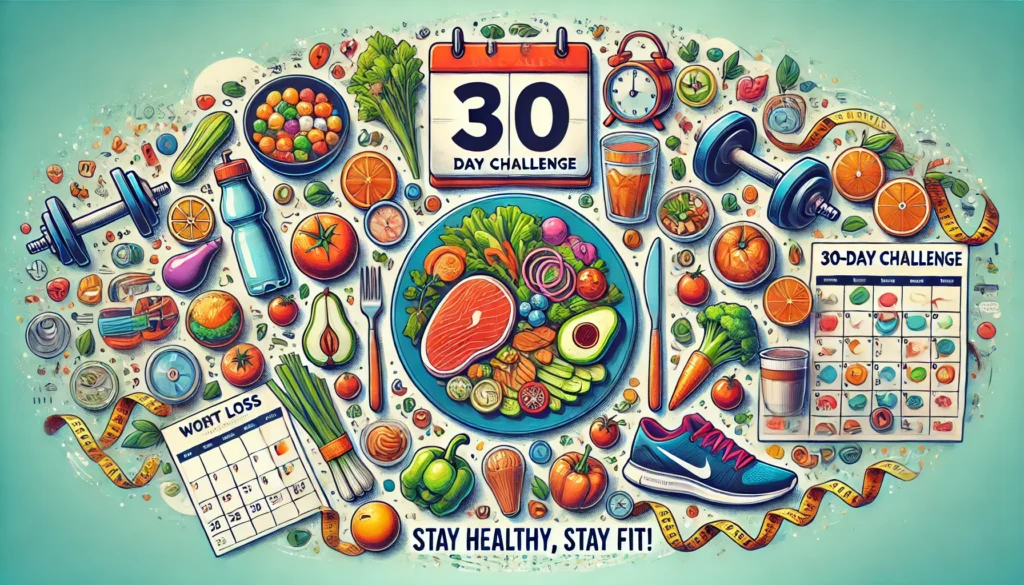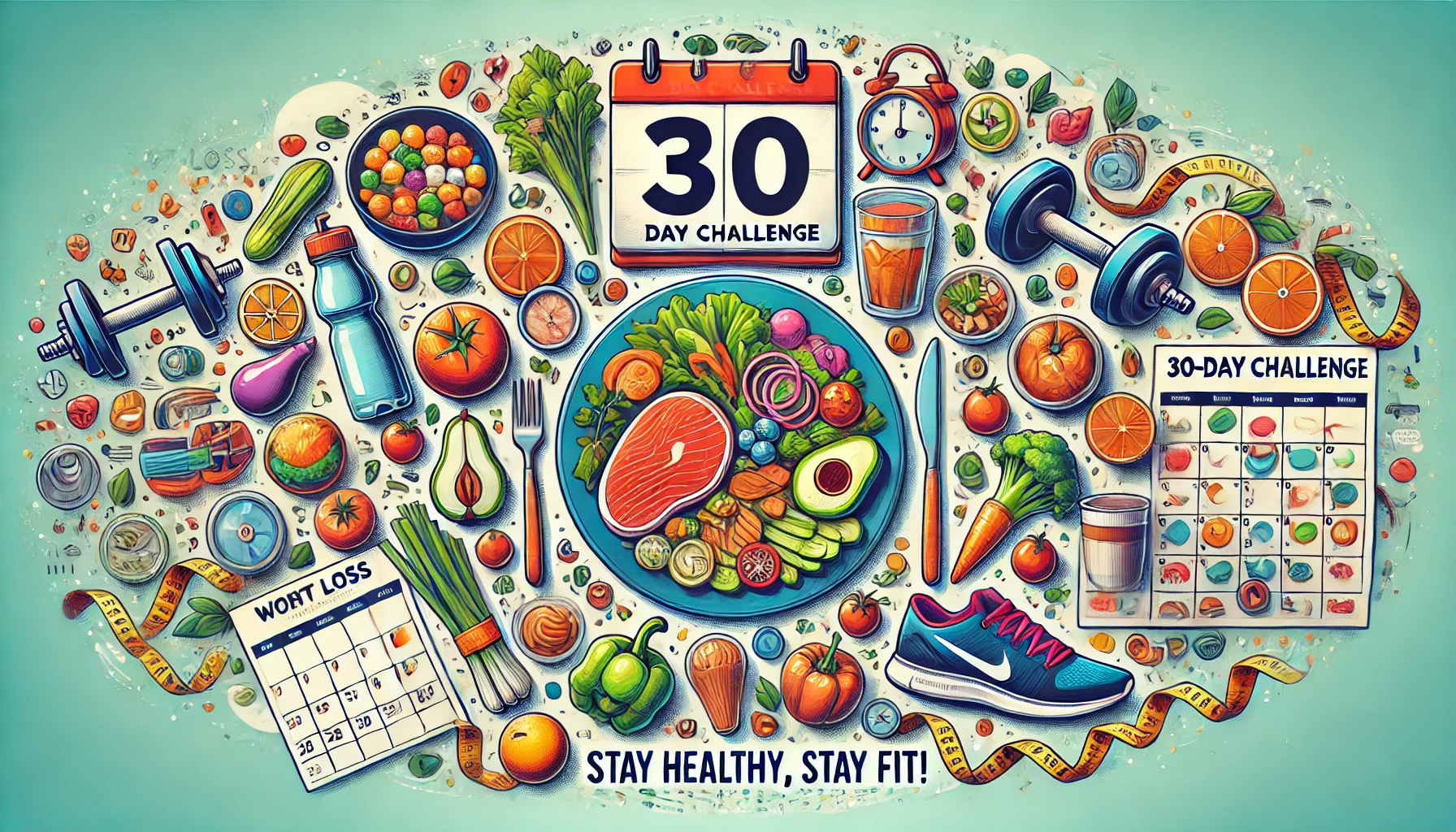Losing weight in 30 days is an ambitious goal, but with the right plan, discipline, and mindset, it’s absolutely achievable. This blog will guide you through a practical and effective approach to shedding excess pounds while building habits that promote long-term health. Remember, while rapid weight loss can be motivating, it’s essential to prioritize safety and sustainability.
Chapter 1: Setting Realistic Goals
Define Your Objectives
- Assess Your Starting Point: Understand your current weight, body composition, and lifestyle.
- Set Achievable Targets: Aim for a healthy weight loss of 1-2 pounds per week, which translates to 4-8 pounds in 30 days.
Understand the Math of Weight Loss
- Caloric Deficit: To lose weight, you need to burn more calories than you consume. A deficit of 500-1000 calories per day is a safe range for most individuals.

Chapter 2: Nutrition Strategy
Clean Eating Principles
- Eliminate Processed Foods: Avoid sugary snacks, sodas, and junk food.
- Prioritize Whole Foods: Include lean proteins, vegetables, fruits, whole grains, and healthy fats.
Meal Planning
- Breakfast: Focus on high-protein options like eggs or Greek yogurt.
- Lunch: Incorporate lean protein with a side of vegetables and complex carbs.
- Dinner: Keep it light with lean protein and non-starchy vegetables.
- Snacks: Opt for nuts, seeds, or low-sugar fruits like berries.
Portion Control
- Use smaller plates to avoid overeating.
- Measure serving sizes to stay within your caloric target.
Chapter 3: Exercise Routine
Cardiovascular Exercise
- Aim for 150-300 minutes of moderate-intensity cardio per week.
- Examples include jogging, cycling, swimming, or brisk walking.
Strength Training
- Perform 3-4 sessions per week focusing on compound movements like squats, deadlifts, push-ups, and pull-ups.
- Building muscle boosts metabolism, helping you burn more calories even at rest.
High-Intensity Interval Training (HIIT)
- Include 2-3 HIIT sessions weekly for maximum calorie burn.
- Example: Alternate 30 seconds of sprinting with 1 minute of walking for 15-20 minutes.
Chapter 4: Lifestyle Adjustments
Stay Hydrated
- Drink at least 8-10 glasses of water daily to boost metabolism and curb appetite.
Sleep and Recovery
- Aim for 7-9 hours of quality sleep each night.
- Poor sleep can disrupt hormones and lead to weight gain.
Stress Management
- Practice mindfulness, meditation, or yoga to reduce stress and emotional eating.
Chapter 5: Monitoring Progress
Track Your Food Intake
- Use apps like MyFitnessPal to log your meals and monitor calories.
Measure Your Results
- Weigh yourself weekly under consistent conditions.
- Track other metrics like waist circumference or how your clothes fit.
Chapter 6: Overcoming Challenges
Dealing with Plateaus
- Adjust your calorie intake or increase exercise intensity if weight loss stalls.
Staying Motivated
- Celebrate small victories, such as fitting into old clothes or completing a fitness milestone.
- Surround yourself with supportive friends or join a community.

Chapter 7: The Importance of Sustainability
Rapid weight loss can be exciting, but the ultimate goal is long-term health. Adopt habits during this 30-day journey that you can maintain for life. Remember, consistency is more important than perfection.
Final Thoughts
Losing weight in 30 days requires commitment, but with a clear plan and disciplined execution, you can achieve significant results. Focus on clean eating, regular exercise, and a healthy lifestyle to not only meet your weight-loss goals but also improve your overall well-being. Always consult a healthcare professional before starting any weight-loss program to ensure it’s safe and suitable for your needs.



